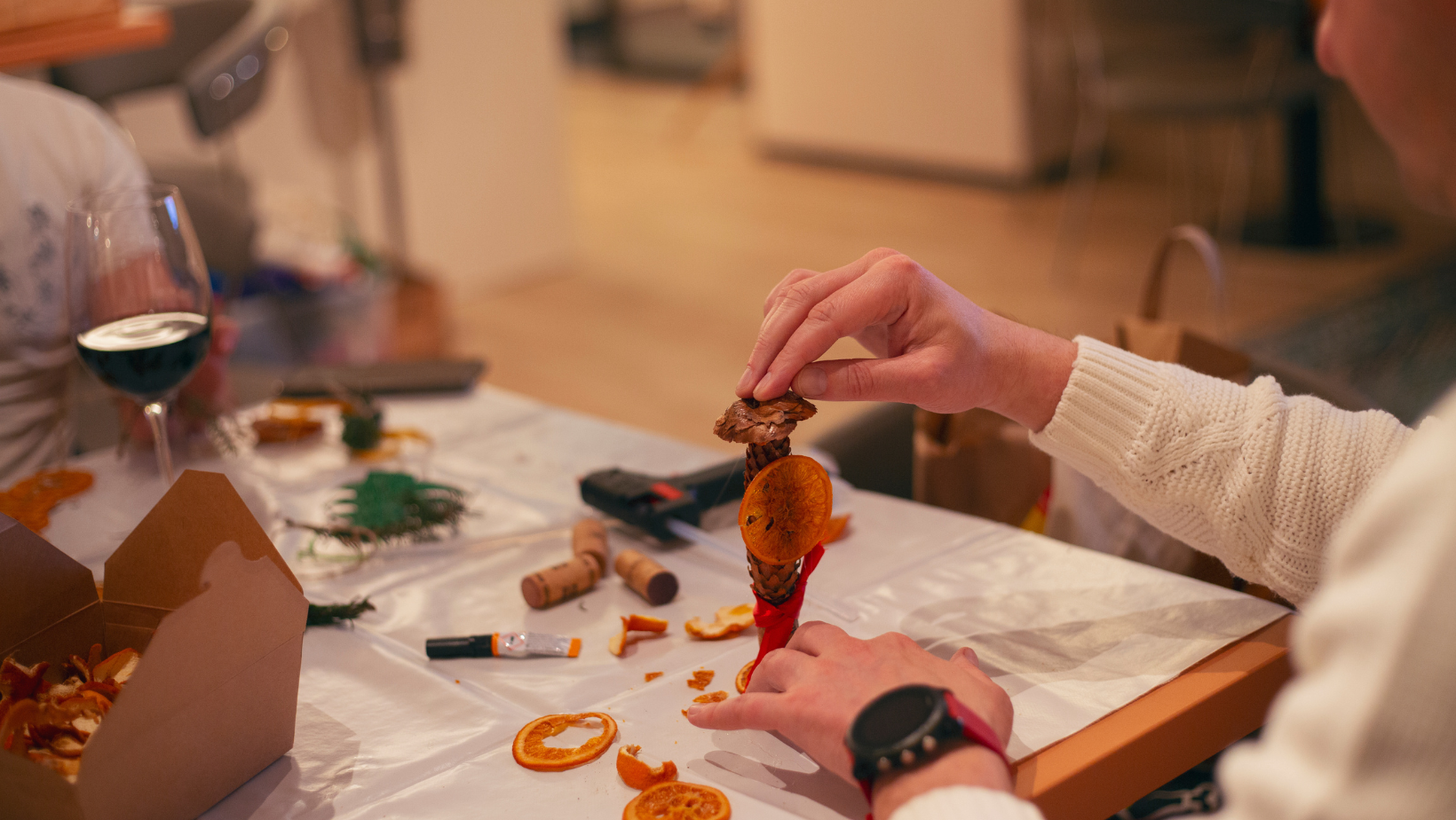The holidays are on, and one of the consequences of long holiday days and rich meals is that we throw away more than 7 thousand tons of food. Here are some easy-to-implement ideas on how to reduce the Christmas waste:
1. Rent a Christmas tree
Christmas trees are usually thrown away after Christmas. Rent a tree from an organization that will plant it back after the holidays. Search the Internet for a similar service near you.
2. No disposable packaging
Yes, everyone loves beautifully wrapped gifts, but after the surprise, the wrapping goes in the trash. Wrap with cloth – the Japanese way for zero waste.
3. Decoration from waste
What is Christmas without decorations? Unfortunately, the mass production of toys pollutes nature with plastic. Create your own citrus decoration… There is a bonus – your home scents of orange.
4. Gift an experience
Another pointless gift gathering dust—no thanks! Instead, gift an experience that will turn into a great memory – a photo shoot, a massage, a concert ticket, a great dinner.
5. Feed a hungry animal
If you have a surplus of food that you won’t eat – don’t throw it away, make a hungry stray animal happy with it.
6. Did you check the fridge?
Before buying new food, check carefully if you don’t already have an open package of what you need somewhere in the fridge.
7. Canning
Canning is an old, but effective method of extending the life of food. You can make jam from the ripe fruit instead of throwing it away.
8. Share with friends
There is usually a lot of uneaten food after Christmas, so why not invite friends over for lunch to finish off the rest of the meals?
9. Recycled cards
Instead of buying cards mass-produced in China, it’s better to buy a handmade card made from recycled paper by a local artist.
10. Solar Christmas lights
This way, you will both save on the electricity bills, and you will have a beautiful decoration.
11. Shopping list
With a shopping list, you won’t end up with surplus products that would be thrown away.
12. Zero waste Secret Santa
If you and your colleagues exchange gifts – write down rules for zero waste such as—no disposable packaging; a gift from a thrift store; favorite book read; a flower in a pot instead of a bouquet, etc.
13. Soy candles
Candles provide coziness and warmth, but most often they are made of paraffin, which is a petroleum product that pollutes. Soy candles are the natural alternative.
14. Homemade sweets
Nothing tastes better than homemade. When we cook, we appreciate the effort put into the food and think more before reaching for the bucket.
15. Natural wreath
It’s easy to make and you can use any evergreen. Add citrus peels for color.
16. Candied orange peels
Wash them well, syrup over low heat and roll them in sugar after they are dry. Bonus – dip in melted chocolate.
17. Seasonal food
Not only does it contain the most vitamins, it also hasn’t traveled thousands of kilometers. Visit the farmer’s market and buy locally produced foods directly from the producers.
18. Wax towels for storage
Surely, after the piled-up table, uneaten food remains. Instead of packing it in a disposable package, use reusable wax towels.
19. No plastic straws
There are great alternatives to plastic straws – bamboo, glass, metal, wheat. Try them out.
20. Silicone baking mat
Buy it once and forget about disposable baking paper. Another bonus is that pastries don’t stick to it.
21. Composter
Food peels, eggshells, paper, leaves – all these can be put in the composter and turn into fertilizer for our plants.
22. Gift a thermos
The tap water in Sofia is almost always drinkable. With a thermos at hand we can significantly reduce pollution with disposable plastic bottles and save money.
23. Freeze the food in excess
The freezer is a zero-waste household’s best friend and can extend the life of food by up to several months.
24. Read the labels
Food with a “Best before” label can be consumed even after this period. “Use by” means foods that may be unsafe after that date.
25. Broth from peels
Homemade broth is much tastier and healthier than store-bought. Boil vegetable peels, broccoli stems and other “waste”.
26. Homemade peels chips
Potato and carrot peels become tasty and healthy chips if they are salted and roasted in the oven with a little olive oil.
27. Shop in bulk
Not only do you avoid disposable packaging, but you also buy exactly as much as you need so that there is no excess.
28. Herb bouqet
The correct way to store fresh herbs is in water. It keeps them fresh for longer, and you have a green bouquet in the kitchen.
29. Donate food
Food banks typically accept donations of packaged, unopened food items nearing their expiration date.
30. Save food with Foodobox
With the mobile application, you can save food left over from your favorite restaurants by buying it with a discount of at least 40% at the end of the day.

